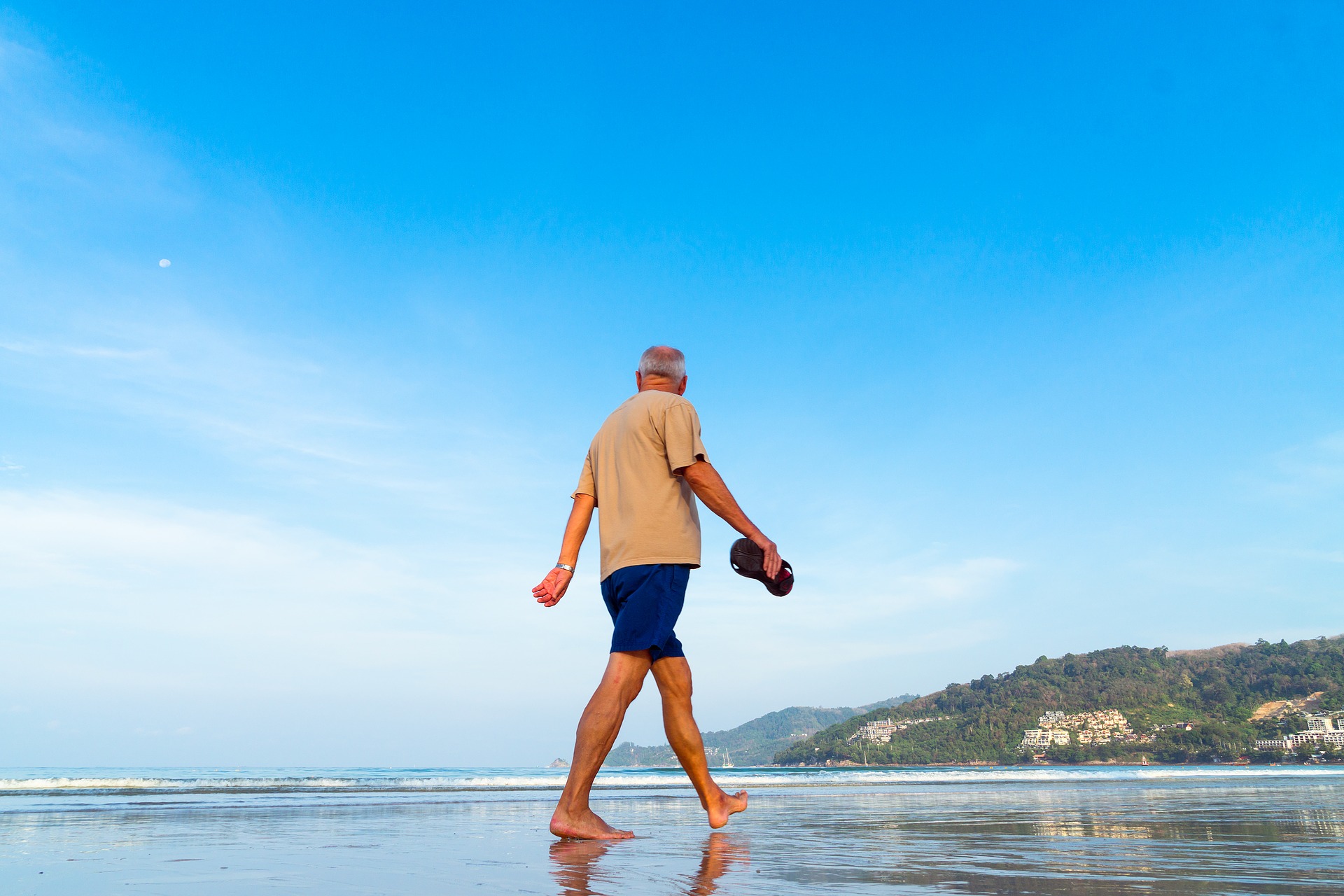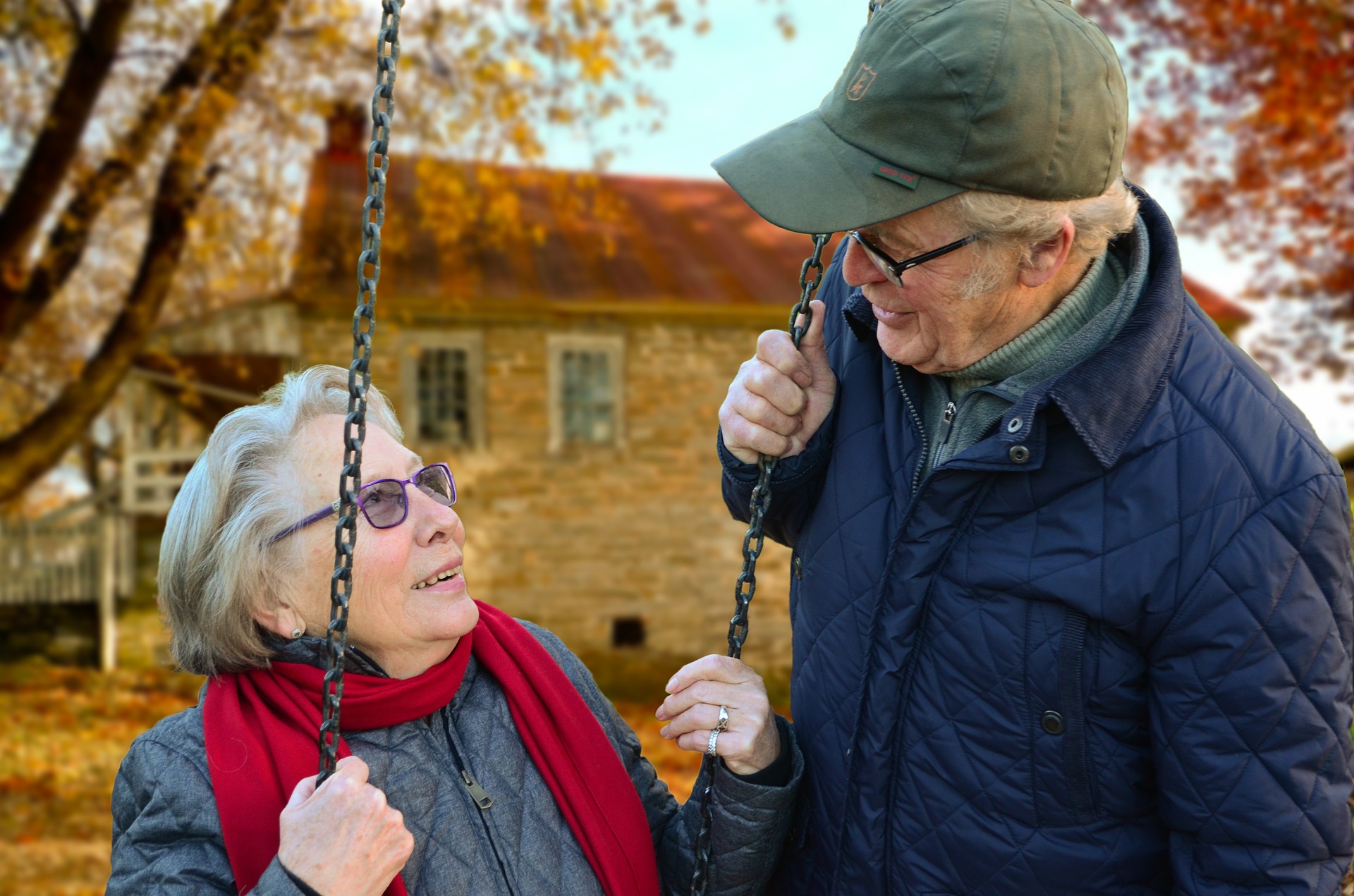source: adapted from the National Institute of Health
Healthy Eating as We Age
We’ve heard it time and time again. Healthy eating can make a difference in your life. It improves how you feel and encourages a sense of well-being.
This is equally true as we age. Older adults need to pay particular attention to their diet. It’s crucial that aging adults get the right nutrients.
There are five main types of nutrients that your body needs to stay healthy:
- Proteins
- ex: seafood, lean meat and poultry, eggs, beans and peas, soy products, unsalted nuts and seeds, and dairy products.
- Carbohydrates
- simple carbohydrates
- ex: fruits, vegetables and milk products, but also sweeteners like sugar, honey, and syrup
- complex carbohydrates
- ex: breads, cereals, pasta, rice, beans and peas, and starchy vegetables such as potatoes, green peas and corn
- simple carbohydrates
- Healthy fats
- ex: olive oil, avocados, peanut butter, fatty fish, nuts and seeds
- Vitamins and minerals
- Vitamins help your body grow and work the way it should. All vitamins are different and help with various processes in your body. It’s better to get your vitamins from nutrient-dense food, but if you don’t think you are making the best food choices, look for a supplement sold as a complete vitamin and mineral supplement. It should be well balanced and contain 100% of the most recommended vitamins and minerals.
- Minerals also help your body function. Some important minerals include:
- Vitamin D, Vitamin B6, Vitamin B12, Folate, and Calcium.
- Water
- Water helps you digest food, absorb nutrients from food, and then get rid of unused waste. With age, you might lose some of your sense of thirst. Try to add liquids throughout the day, but always drink a full glass of water with every meal and any time you need to take medication.
With seniors, sometimes food just doesn’t taste the same. Perhaps its more difficult to go to the grocery store and prepare nutritious meals. Maybe as you age you just aren’t that hungry any more. However, it’s essential that you continue to eat healthy, balanced meals.
Physical Activity Campaign
Don’t just focus on one type of exercise. Incorporate all four of the main types of exercise into your daily routine:
Endurance is an aerobic exercise that increases your breathing and heart rate. This type of exercise not only helps improve your fitness, but helps you do necessary daily tasks. Endurance exercises improve the health of your heart, lungs, and circulatory system.
Strength can make a real difference in day-to-day function. The stronger your muscles are, the easier it will be to get up from a chair, climb stairs, carry groceries, open jars and play with your grandkids.
Balance exercises can help prevent falls and avoid the disability that may result from falling (more on falls in part 2). Practice standing on one foot, using a chair to help if necessary. Do the Heel-to-Toe walk or Tai Chi to improve balance.
Flexibility gives you more freedom of movement. It can help you feel better during daily activities such as getting dressed and reaching objects on the shelf or floor.
Remember to always stay safe and talk to your doctor before starting a new exercise routine.
Sleep and Aging
We all look forward to a good night’s sleep. Without restful sleep, we can become grumpy and agitated. However, sleep needs change over our lifetime. Children and adolescents need more sleep than adults, but interestingly, older adults need the same amount of sleep as younger adults.
Unfortunately, many older adults do not get the sleep that they need. Some seniors have trouble falling asleep. Others sleep less deeply and wake up throughout the night. Sleep schedules also may change – going to sleep earlier in the evening and waking at dawn.
If you have trouble sleeping, seek help. This is not a normal part of aging. While a change in sleep patterns is normal, disturbed sleep and waking up tired every day is not a normal part of aging.





